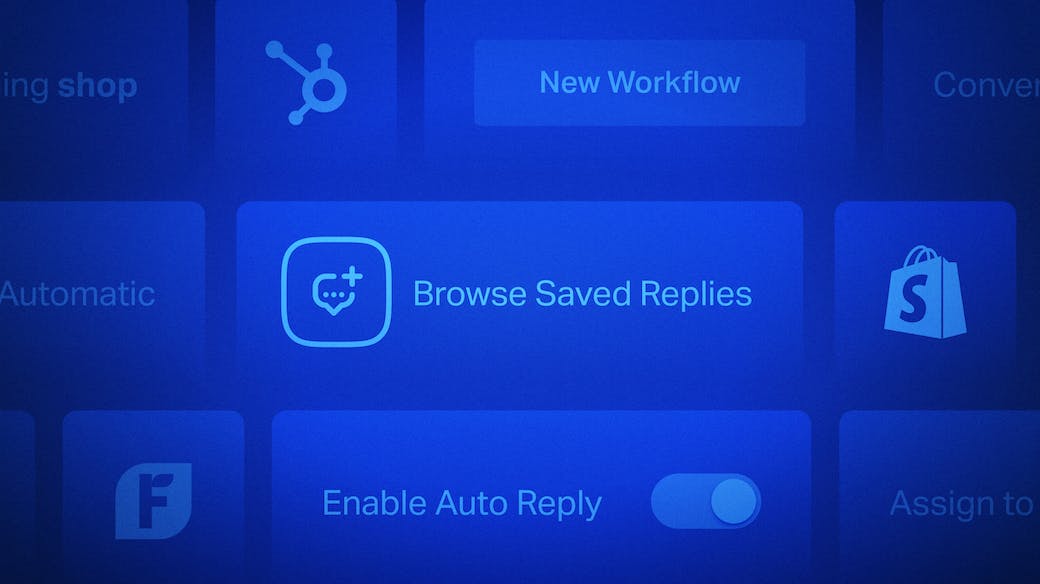Ecommerce Automation: Step by Step Guide for Beginners


In today's fast-paced digital world, ecommerce businesses need to be agile and efficient to stay ahead of the competition. One of the most effective ways to achieve this is through ecommerce automation. By automating various aspects of your online store, you can save time, reduce errors, and scale your business more effectively.
It's important to approach automation with caution and implement it the right way to avoid common pitfalls. In this comprehensive guide, we'll explore the different types of ecommerce automation, their benefits, and how to implement them in your business without sacrificing quality or that ever-important human connection.
What is ecommerce automation?
Ecommerce automation is the process of using software, tools, and technology to automate repetitive tasks, streamline workflows, and optimize various aspects of your online store. This can include everything from inventory management and order processing to marketing and ecommerce customer service.
Automating your ecommerce business offers a wealth of benefits that can significantly improve your operations. For starters, automation allows you to save precious time by handling repetitive tasks, giving your team the opportunity to focus on more strategic and creative work. This not only enhances efficiency and productivity but also ensures a more consistent and accurate customer experience by minimizing human errors.
One of the most valuable advantages of automation, though, is its ability to scale with your business. As your business grows, automation enables you to manage higher order volumes and customer inquiries without the need for additional staff, allowing you to scale your business effectively and efficiently.
Embracing automation in your ecommerce business can provide you with the tools and resources needed to thrive in the competitive online marketplace.
Of course, there are also potential downsides associated with ecommerce automation, such as over-automation, loss of personalization, and reliance on outdated or inaccurate data. To avoid these issues, it's crucial to implement automation strategically and maintain a balance between automation and human touch.
Types of ecommerce automation
There are several types of ecommerce automation, each targeting a specific aspect of your online store. Let's take a closer look at some of the most common types.
Ecommerce marketing automation
Marketing automation is the process of using software and tools to automate repetitive marketing tasks, such as email campaigns, social media posting, and ad management. This can help you save time, improve targeting, and increase the effectiveness of your marketing efforts, ultimately leading to better customer engagement and higher conversion rates.
Here are some ways marketing automation can help grow your ecommerce business:
Segment your audience: Use customer data to create targeted marketing campaigns based on factors like demographics, purchase history, and browsing behavior. By segmenting your audience, you can deliver more relevant and personalized content that resonates with your customers.
Personalize your messaging: Tailor your marketing messages to individual customers to increase engagement and conversion rates. This can include personalized product recommendations, special offers, and content that addresses specific customer needs and preferences.
Test and optimize: Continuously test different marketing strategies, channels, and messaging to find what works best for your audience. Use analytics and performance metrics to identify areas for improvement and refine your marketing approach accordingly.
Automate email campaigns: Utilize marketing automation tools to create and schedule targeted email campaigns that nurture leads, recover abandoned carts, and promote customer loyalty. Automated email campaigns can help you maintain consistent communication with your customers and drive repeat business. We’ll talk more about email automation in the next section.
Leverage social media automation: Automate your social media posting and engagement to maintain a consistent and active presence on platforms like Facebook, Instagram, and TikTok. This can help you reach a wider audience and keep your brand top of mind for potential customers.
Monitor and analyze performance: Track the performance of your marketing automation efforts and use data-driven insights to make informed decisions about your marketing strategy. Regularly review your analytics to identify trends and opportunities for growth.
You can use marketing automation to create tailored campaigns that resonate with your target customers, ultimately leading to increased customer satisfaction and loyalty.
Ecommerce email automation
Email automation is the process of using software to send targeted, personalized emails to customers based on specific triggers or actions, such as abandoned carts, product recommendations, or post-purchase follow-ups. By automating your email marketing efforts, you can save time, increase engagement, and create more meaningful connections with your customers.
To implement email automation effectively in your ecommerce business, consider the following best practices:
Use triggered emails: Send emails based on specific customer actions, such as abandoned carts or product views, to increase relevance and engagement. This timely and purposeful communication can help recover lost sales and encourage customers to complete their purchases.
Personalize your content: Use customer data to personalize email content, such as including the customer's name or recommending products based on their browsing history. Personalization can help make your emails more engaging and improve conversion rates.
Optimize for mobile: Ensure your emails are mobile-friendly, as a significant portion of your customers will likely be reading them on their smartphones. Use responsive design and clear, concise messaging to create a seamless experience across devices.
Test and refine: Continuously test different subject lines, email designs, and content to discover what resonates best with your audience. Use data-driven insights to optimize your email campaigns for maximum impact.
Maintain a clean email list: Regularly update and clean your email list to ensure you're only sending to engaged and interested subscribers. This can help improve your email deliverability and overall campaign performance.
Monitor key metrics: Track important email marketing metrics, such as open rates, click-through rates, and conversion rates, to measure the success of your email automation efforts. Use this data to make informed decisions and refine your strategy over time.
With the right approach and tools, email automation can become a cornerstone of your ecommerce success, empowering you to deliver exceptional customer experiences at every touchpoint.
Try the customer support platform your team and customers will love
Teams using Help Scout are set up in minutes, twice as productive, and save up to 80% in annual support costs. Start a free trial to see what it can do for you.
Try for free
Ecommerce customer service automation
Automation can make a significant impact on customer service. By leveraging the right customer service software and strategies, you can create an automated ecommerce business that delivers exceptional customer service without sacrificing the personal touch that sets you apart from the competition.
Automating customer service in your ecommerce business offers several benefits, including:
Saving time and resources by reducing manual, repetitive tasks.
Improving response times and customer satisfaction.
Giving support teams more time for interesting, complex requests.
Scaling your support operations without sacrificing quality.
Gaining valuable insights from data to make informed decisions.
AI in ecommerce
Artificial intelligence (AI) is increasingly being used in ecommerce to enhance traditional automation solutions and provide more advanced capabilities. AI-powered tools can analyze large amounts of data, identify patterns and trends, and make intelligent decisions based on this information. By integrating AI into your ecommerce automation strategy, you can unlock new possibilities and drive remarkable improvements in customer experience and operational efficiency.
Examples of AI-powered ecommerce automation may include:
Chatbots: AI-powered chatbots can handle customer inquiries, provide product recommendations, and assist with order tracking, freeing up your customer support team to handle more complex issues. By offering instant, personalized support, chatbots can help improve customer satisfaction and automate your support processes.
Personalization: AI-driven personalization can analyze customer data and behavior to provide highly targeted product recommendations and content. By delivering personalized customer experiences, you can increase engagement, boost conversion rates, and foster customer loyalty.
Dynamic pricing: AI-based pricing tools can analyze market trends and competitor pricing to help you optimize your pricing strategy in real time. This can help you stay competitive, maximize profits, and adapt quickly to changing market conditions.
Inventory management: AI-powered inventory management systems can predict demand patterns, optimize stock levels, and automate reordering processes. By leveraging AI, you can reduce stockouts, minimize excess inventory, and improve overall supply chain efficiency.
Fraud detection: AI-driven fraud detection tools can analyze customer behavior and transaction data to identify and prevent fraudulent activities. This can help you protect your business from potential losses and maintain a secure shopping environment for your customers.
Embracing artificial intelligence in your ecommerce business can unlock new possibilities and drive sustainable growth for your business.
5 top ecommerce automation tools
There are numerous ecommerce automation tools available, each offering a different set of features, pricing, and suitability for various business sizes and needs. Here are some of the top tools to consider.
Help Scout
Zapier
Klaviyo
HubSpot Marketing Hub
Brevo (formerly Sendinblue)
1. Help Scout
Best ecommerce automation tool for customer service.
Help Scout is a communication platform that empowers growing businesses to manage customer conversations seamlessly. With its easy-to-use interface, teams can create email inboxes like support@ and info@, implement live chat on websites, and develop help centers. All of those customer interactions flow into a single view that looks just like an inbox but offers powerful collaboration and automation tools under the hood. Some of Help Scout's standout features include:
Workflows: Automate repetitive tasks, such as assigning conversations to specific team members or applying tags to categorize inquiries.
Messages: Automate messaging to promote new campaigns, provide updates, or offer proactive support.
Saved replies: Create pre-written responses to common customer questions, saving your team time and ensuring consistent messaging.
Microsurveys: Automate customer feedback collection through engaging, in-app surveys, providing valuable insights to enhance user experiences and drive growth.
Integrations: Seamlessly integrate Help Scout with popular ecommerce platforms, CRM systems, and other tools to streamline your customer service operations.
Reporting: Get valuable insights and metrics to help you optimize your support processes and deliver exceptional customer experiences.
At Help Scout, we're committed to keeping the human touch in customer support. Our platform is designed to help you automate tasks without sacrificing the personalization and empathy that customers appreciate. After all, the right mix of automation and human touch can make all the difference in the world of ecommerce.
Price: Free trial available. Plans start at $20/user per month.
Learn more about Help Scout:
2. Zapier
Best ecommerce automation tool for multi-app task management.
Zapier is a popular automation platform that connects your favorite apps and automates tasks between them, such as sending order data from your ecommerce platform to your email marketing tool. Zapier integrates with Help Scout to effortlessly connect your help desk to thousands of apps, automating workflows and boosting productivity across your organization.
With features like app integrations, multi-step zaps, conditional logic, and task history, Zapier is suitable for businesses of all sizes looking to automate tasks between different apps and platforms.
Price: Free plan available. Paid plans start at $19.99/month.
3. Klaviyo
Best ecommerce automation tool for email marketing.
Klaviyo is an email marketing and automation platform designed specifically for ecommerce businesses. Some of Klaviyo’s key features include email automation, segmentation, personalization, analytics, and integrations, making the platform suitable for ecommerce businesses of all sizes looking to enhance their email marketing strategies.
Klaviyo integrates with Help Scout, enabling seamless data synchronization, enriching customer profiles, and empowering personalized marketing campaigns for an enhanced customer experience.
Price: Free plan available. Paid plans start at $20/month.
4. HubSpot Marketing Hub
Best ecommerce automation tool for marketing.
HubSpot Marketing Hub is a marketing automation platform designed to help businesses streamline their marketing efforts and drive growth. It offers a wide range of automations, including abandoned cart emails and personalized product recommendations. HubSpot Marketing is best suited for large marketing teams or enterprise companies.
HubSpot's integration with Help Scout brings key customer data to your support team, providing full context on each customer relationship and ensuring your CRM stays up to date with customer satisfaction ratings.
Price: Free trial available. Plans start at $18/month.
5. Brevo (formerly Sendinblue)
Best ecommerce automation tool for SMS marketing.
Brevo is a comprehensive marketing automation platform that caters to ecommerce businesses of all sizes, aiming to boost their marketing efforts and drive growth. It offers a variety of ecommerce marketing automations, such as email campaigns, SMS marketing, and personalized product recommendations.
Pricing: Free plan available. Paid plans start at $22/month.
Choosing the best ecommerce automation software
When choosing ecommerce automation tools, consider the following features:
Integration with your ecommerce platform: Ensure the software integrates seamlessly with your existing ecommerce platform, such as Shopify, WooCommerce, or Magento. This will allow for a smooth transition and minimize potential disruptions to your operations.
Customization and flexibility: Look for a tool that offers customization options and can adapt to your specific business needs and workflows. This will enable you to tailor the software to your unique processes and requirements, ensuring maximum efficiency and effectiveness.
Customer experience: A tool like Help Scout can elevate and automate your customer service experience. By combining powerful automation features with a focus on personalized and empathetic customer interactions, Help Scout enables your team to deliver high-quality support that keeps customers coming back.
Scalability: Choose a solution that can grow with your business and handle increased order volumes and complexity as your store expands. This will ensure that your automation software remains a valuable asset as your business evolves and grows.
Ease of use and training: Opt for a tool with a user-friendly interface and comprehensive training resources. This will make it easier for your team to learn and use the software effectively, maximizing the benefits of automation.
Reporting and analytics: Select software that offers robust reporting and analytics features, allowing you to track performance, identify areas for improvement, and make data-driven decisions to optimize your operations.
How to automate your business the right way
Identify your business needs and objectives
By understanding the specific pain points and areas where automation can make the most significant impact, you can prioritize your efforts and select the right tools to address those needs. Research various automation platforms and tools, comparing their features, ease of use, and compatibility with your existing systems. Look for solutions that offer seamless integrations with your ecommerce platform, and ensure they can scale with your business as it grows.
Develop an automation implementation strategy
Consider creating a roadmap that outlines the various stages of implementation, including setting up the necessary integrations, configuring workflows and automations, and training your team to use the new tools effectively. This roadmap will help ensure a smooth transition and minimize potential disruptions to your operations.
Balance automation with being human
As you implement ecommerce automation, it's important to strike the right balance between automation and personalization. While automating repetitive tasks can save time and increase efficiency, you don’t want to lose sight of the value of human connection in customer interactions. Personalized and empathetic customer support can significantly impact customer satisfaction and loyalty. In fact, HubSpot reports that 93% of customers are likely to make repeat purchases with companies offering excellent customer service, so make sure your automation efforts don't compromise the quality of your customer experience.
Monitor the performance of your automation efforts
Implementing ecommerce automation is an ongoing process. Continuously monitor the performance of your automation efforts, gather feedback from customers and team members, and be prepared to make adjustments as needed.
By staying agile and responsive, you'll be able to optimize your processes, strike the perfect balance between automation and personalization, and set your ecommerce business up for long-term success.
Grow your ecommerce business with Help Scout
Ecommerce automation can be a game-changer for your online store, helping you save time, reduce errors, and scale your business more effectively. By implementing automation strategically and maintaining a balance between automation and personalization, you can ensure a seamless and enjoyable customer experience.
Experience the benefits of ecommerce automation firsthand. Sign up for a free trial of Help Scout and discover how our platform can help you automate your customer service processes while keeping the human touch your customers want.
The Supportive Weekly: A newsletter for people who want to deliver exceptional customer service.



